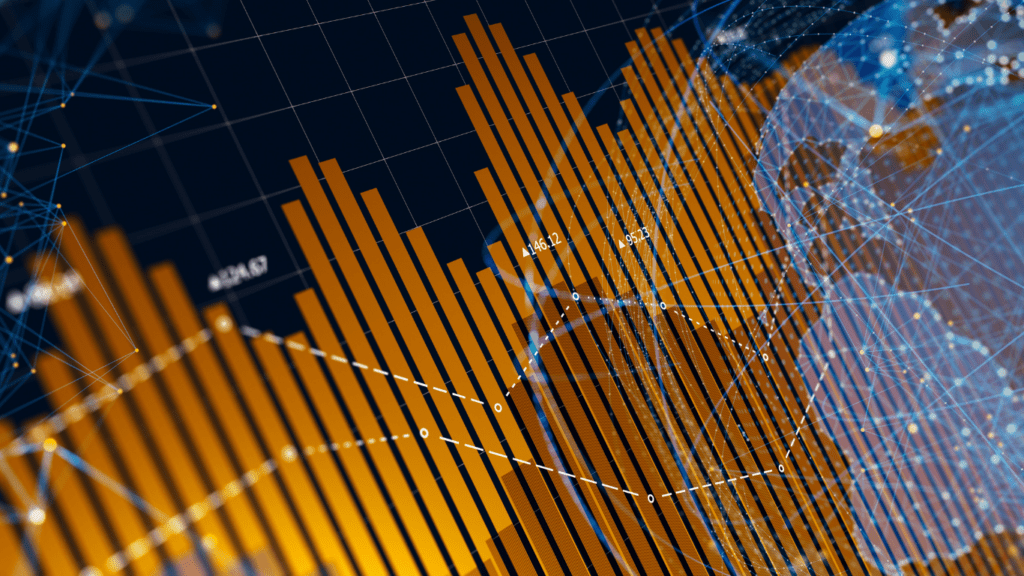Overview Of The Tech Trend Report 2025
The Tech Trend Report 2025 examines critical innovations shaping the decade ahead. It provides analysis on technological advancements impacting industries and societies globally.
Purpose And Scope Of The Report
This report identifies transformative technologies expected to influence various sectors by 2025. It focuses on emerging solutions in artificial intelligence, digital environments, sustainability, and global connectivity. The primary goal is to inform decision-makers, innovators, and policymakers about the opportunities and challenges posed by these trends. Coverage spans diverse fields, including healthcare, urban infrastructure, and automation-driven industries, analyzing their implications for economic and societal shifts.
Key Themes And Insights Highlighted
Key themes include the expansion of artificial intelligence into predictive analytics and complex decision-making. Insights reveal AI’s role in driving efficiency in healthcare through personalized treatment plans and early diagnostics. Immersive technologies like augmented and virtual reality are highlighted for their potential in education, retail, and virtual workspace integration. The report also examines advancements in green technology, emphasizing renewable energy systems, carbon capture, and circular economy applications. Automation and robotics aim to redefine workflows in manufacturing and logistics, while developments in 5G and quantum computing promise unmatched data processing and connectivity speeds.
Emerging Technologies Shaping The Future

Innovations in technology are redefining industries and driving transformative changes in society. By 2025, several emerging technologies are set to play critical roles in shaping the future.
Breakthroughs in Artificial Intelligence
Artificial intelligence is becoming more sophisticated, expanding its capabilities in areas like prediction and decision-making. AI-powered systems are improving diagnostic accuracy in healthcare by analyzing vast datasets to identify patterns. In logistics, autonomous supply chain management is optimizing operations and reducing delays. Generative AI, such as natural language processing models, is enhancing content creation, enabling hyper-personalized marketing, and accelerating product design.
The Rise of Quantum Computing
Quantum computing is advancing computational power far beyond what’s achievable with classical systems. These machines are solving complex problems in minutes that previously took years. Industries like materials science are leveraging quantum simulations to create breakthroughs in drug development and battery design. In cybersecurity, quantum encryption offers virtually unbreakable data protection, addressing growing concerns about digital threats. As scalable quantum solutions emerge, sectors from finance to logistics will harness this technology for unprecedented optimization.
Advancements in Renewable Energy Tech
Renewable energy technologies are scaling rapidly to meet sustainability goals and reduce carbon emissions. Innovations like perovskite-based solar cells are increasing efficiency and lowering costs in solar power generation. Wind energy is benefiting from advanced turbine designs, enabling greater energy capture even in low-wind regions. Grid-scale energy storage solutions, such as solid-state batteries, are addressing intermittency issues in renewable energy supply. Smart energy systems integrating AI are enabling predictive power distribution and improving energy efficiency globally.
Innovations Transforming Industries
Technological advancements are driving profound change across multiple sectors, redefining traditional processes and unlocking unprecedented opportunities. Key innovations are reshaping industries by introducing smarter, faster, and more efficient solutions.
Disruptive Changes In Healthcare
Healthcare is undergoing a transformation with precision medicine, AI-driven diagnostics, and wearable tech playing pivotal roles. AI tools now analyze medical imaging with over 90% accuracy, improving early disease detection. Wearable devices monitor vitals in real-time, providing actionable data for personalized care. Gene editing, particularly CRISPR, offers potential cures for genetic disorders, while telemedicine adoption has surged, making healthcare accessible to remote locations.
Next-Generation Transportation Technologies
Transportation innovations are moving towards sustainability and efficiency through next-gen systems.
- Autonomous vehicles are progressing towards safer roadways, with companies achieving Level 4 autonomy in controlled environments.
- Electrification has become mainstream, with over 14 million electric vehicles sold globally by 2023, cutting emissions.
- Hyperloop systems and urban air mobility solutions, like drone taxis, aim to revolutionize urban transit by reducing commute times.
- Shared mobility platforms are further optimizing transportation networks.
The Evolution Of Smart Cities
Smart cities leverage IoT, AI, and edge computing to enhance urban living.
- Integrated smart grids manage energy distribution efficiently, reducing wastage.
- IoT-supported traffic systems cut congestion, with real-time data improving flow by 20-30%.
- AI-enhanced waste management systems implement autonomous collection and recycling mechanisms.
Additionally, smart buildings equipped with energy-efficient sensors and automated climate controls are reducing urban carbon footprints.
Challenges And Ethical Considerations
Technological advancements bring transformative potential but also present complex challenges and ethical concerns. Addressing these issues is critical to ensure innovations benefit society responsibly.
Addressing Data Privacy Concerns
Massive data generation in technologies like AI and IoT raises significant privacy risks. Companies frequently collect personal data, such as browsing behaviors, location history, or health metrics. Without robust protections, this data risks misuse, breaches, or unauthorized surveillance. I notice that even advanced encryption methods struggle to fully safeguard user information when systems are vulnerable to cyberattacks. Clear regulatory frameworks and transparent data usage policies can ensure ethical handling of personal information.
Balancing Tech Innovation With Sustainability
Rapid technological growth can strain environmental resources due to increased energy consumption and e-waste. For instance, data centers supporting AI demand substantial electricity, contributing to carbon emissions. Developing green technologies like energy-efficient processors and adopting circular economy principles in device manufacturing can minimize negative impacts. I encourage innovation that prioritizes eco-friendly designs and solutions, ensuring sustainability aligns with the pace of development.
Preparing The Workforce For Technological Shifts
Widespread adoption of AI, robotics, and automation risks displacing traditional jobs, especially in manufacturing and administrative sectors. I see the growing skills gap as a major challenge, with many employees lacking competencies in emerging tech fields. Proactive measures like upskilling programs, increased access to STEM education, and fostering digital literacy can mitigate workforce disruptions. Investments in lifelong learning and adaptability are essential to prepare societies for these shifts.
What To Expect In The Next Decade
Emerging technologies are predicted to reshape industries and redefine societal structures over the next ten years. Businesses, governments, and communities must adapt to these changes and leverage the opportunities they bring.
Long-Term Implications For Businesses
Businesses are likely to experience transformative shifts from advancements in automation, AI, and digital connectivity. Automation is set to optimize supply chains, streamline production processes, and reduce operational costs. AI is expected to expand predictive analytics, enabling businesses to forecast market trends and personalize customer experiences. For example, companies in retail and e-commerce sectors are increasingly adopting AI-powered recommendation systems, driving higher customer satisfaction and sales.
Industries such as manufacturing and logistics may see substantial changes with the use of robotics and IoT devices. These technologies enhance real-time monitoring, predictive maintenance, and operational efficiency. The financial sector is projected to benefit from blockchain applications, improving transaction security and reducing settlement times. Businesses that integrate these innovations early will likely maintain a competitive advantage.



